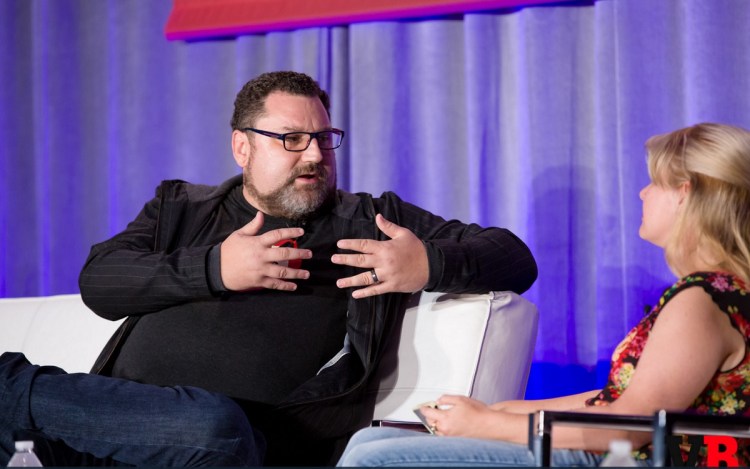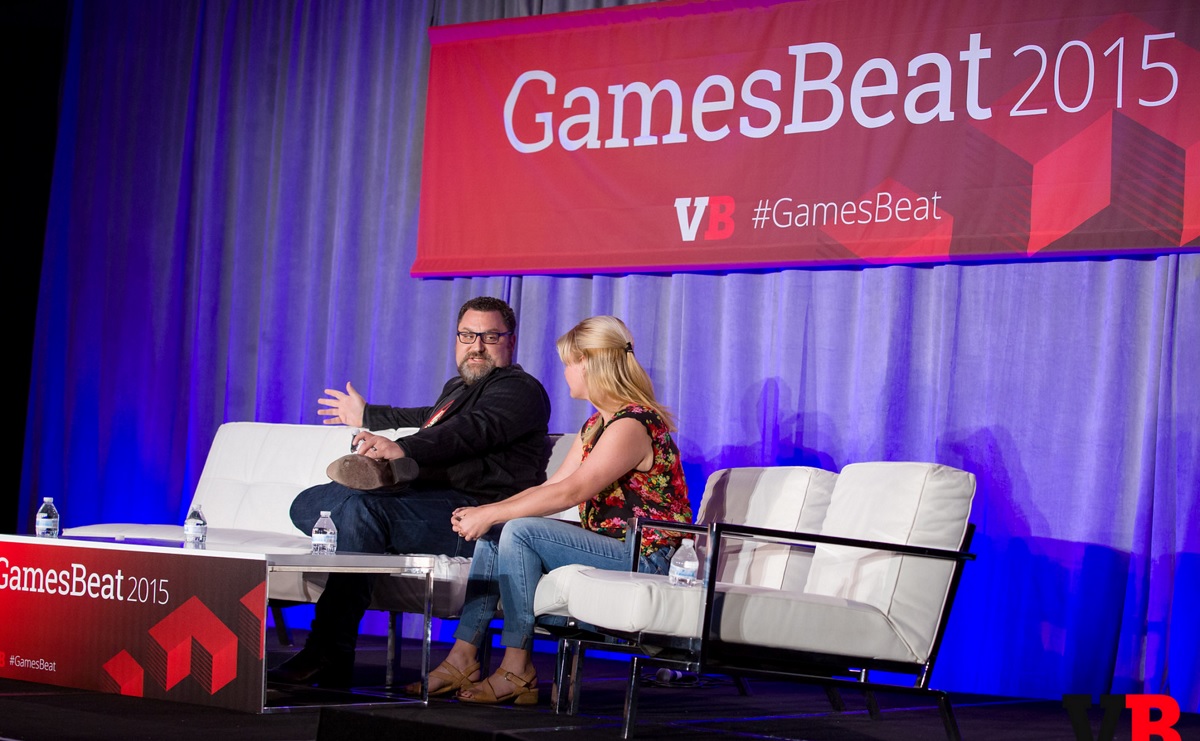Glasser: Of the games you’ve had to bid goodbye to, which was the hardest to let go of?
Heatherly: It’s in the PC space, but it Toontown. It had a pretty small audience by the time we shut it down, but it was still a very passionate audience. I still get accosted at dinner parties and barbecues. We’d love to bring back Toontown someday, in some form. It’s always hardest with games that have that community element, and Toontown really had that.
Glasser: What about a property where it has a passionate audience already, but you haven’t leveraged it yet in a game? Do you have any anxiety around how to connect with that audience? How do you deal with that?
Heatherly: The biggest challenge we have as a traditional entertainment company is that we tend to have — if you look at Pixar, for example, they have a director-driven process where the story is being created by — it’s a team, but it’s a small group of people who own the story. They take incredible pride in continuity and consistency. The second you bring those worlds into the gaming space, you give the player agency. Now they’re part of the story and they’re making story.
The thing we spend a lot of time doing is working with those creators to help identify how we can give players that agency while still respecting the fiction and respecting the creators’ vision. There’s this push-pull that can be a very positive thing around — we’re starting to give the story, and the IP to a certain degree, to the audience. How do we welcome them into that?
Glasser: How do you encourage people to share what they’re doing with their creations and how they’re participating?
Heatherly: When we were doing more MMOs, there was a ton of emergent gameplay around that. Club Penguin has hundreds of thousands of videos on YouTube that kids have created. It can just be a little TV set for their animated show they’re making. But one thing we’re thinking about a lot more, especially with the Maker folks in the fold, is the social net effects and what happens to the game outside the game. How do you build community? How do you build games in a way that allows people to share?
We have a game we’re going to launch this week that we co-developed with a great team called Zendagi. It’s called Disney Dream Treats. One thing we liked about Zendagi’s engine is they allow you to take photos of your friends and family and bring them into the game. The whole conceit is you’re at Disneyland, going to different restaurants and playing a match-three game to feed your friends and family. When you get to certain levels, you get a gift, and the gift is this little postcard of you and Disney characters and your friends posed in the game. You can share that on Facebook.
We’re thinking more and more about these kinds of clever ideas. What’s the social souvenir from the game? How do I share that in a way that’s interesting to other people, and not just more marketing or advertising?
Glasser: On the subject of Facebook and sharing, what is something you wish they would build to make your job easier?
Heatherly: I’d love to figure out how to bring Facebook Messenger into our games in a deeper way. Not pushing into Messenger, but bringing it in. There’s something around — people spend a lot of time setting up guilds. The social dynamics are getting more and more elaborate in these games. If we had a way to extend that out into applications that people are using on daily basis and not just keeping it contained in the game, that could help explode the social possibilities within games.
Glasser: Of all the Disney games that have been on Facebook, what was your favorite? Even if it’s no longer in the lineup.
Heatherly: Frozen Free Fall is currently on Facebook and doing well for us. I’d have to say that’s one of our favorites. And Marvel Avengers Alliance. That’s our biggest free-to-play game ever in terms of success. It still has a huge, passionate audience. Avengers Alliance is just a phenomenon. It continues to over-deliver what we thought it could do at this stage in its life. It passed three years earlier this year.
Glasser: Do you see a consolidation in the web and mobile space? Facebook has been in a weird in-between space. What does a game developer think of the situation?
Heatherly: We’re focused on mobile and mobile platforms. We’re primarily a Unity shop. We do some stuff with Unreal, but — if you look at what we’re trying to do, which is enable a network of developers both internally and externally, you need to be on common tools and technology. A lot of times we want to share code and systems. The more we bring elaborate social systems in there, connections between our games, we need a common platform to be able to do that.
I think you’re going to see, at some point, a resurgence in — I don’t think PC gaming is dead. But what I do think is it’s going to transition. It may not be in browser, but it may be downloads in the app stores. We’ve had a good amount of success with Steam, and not just the kind of stuff that you would normally think of. Frozen Free Fall is on Steam. We brought back most of the Lucas catalog and put it on Steam. That’s been very successful. We’re seeing that as a marketplace on the PC as well.
Glasser: How does that affect your mobile strategy going forward? Are you always going to build with that in the back of your mind?
Heatherly: What’s changing now — we’re pretty excited about the Apple TV, Android TV, what those devices represent. What you’re going to see is that these games are going to evolve in much more complex ecosystems. There’s going to be a mobile component, a TV component, a PC component. You’ll want to play your favorite games wherever you are, but the way you play them may be different.
When I’m playing on TV, I may want to play in a competitive multiplayer, synchronous in-room local kind of way. When I’m on mobile I probably want to play asynchronous against AI. Up until now most games tend to be defined by a platform. You’re going to see games that are defined by multiplatform. That’s what we’re thinking about.
Glasser: Pretend you can see the future. What do you think will happen in the next 12 months in the mobile space?
Heatherly: I don’t buy into the hooey around the mobile space being stale and stagnant and let’s all move on to VR. Right now mobile is getting to a place where it’s becoming a real business for a lot of people. It’s not interesting to the people who are funding startups. It’s not as interesting as it once was, maybe. But it’s the largest gaming platform in the world, and now those operating systems and technologies are going to be on your televisions.
If you look in the living room, people have consoles and cable boxes. But when you go into the bedroom — people have three or four TVs in their house. Those bedrooms are disproportionately connected to Rokus and Apple TVs and Fire TVs. You’re going to see the democratizing of games on the television in the way you saw it on mobile, but it will be with mobile technologies and mobile platforms and this idea of mobile to TV. That’s going to be a big idea. The industry is only going to explore over the next year or two there.
I’m excited about VR. I also think it’s probably very early from a business perspective. Now is the time to be out there experimenting and learning. We invested in Jaunt. ILM has xLab. I’ve said internally that if you can think of one team you’d want to put on VR stuff, it’s ILM. We have the right folks on it. But that’s a longer play. Over the next 24 months, what’s really going to blow up the industry is mobile technology making it into television.
Glasser: Is there anything I didn’t ask that you were hoping I would ask?
Heatherly: I have a guest here in the audience, Max, one of our fans from Club Penguin. Club Penguin is celebrating its 10th anniversary in a couple of weeks. A lot of people copied Club Penguin, but none of them really got the secret sauce, which is that Club Penguin creates a safe place for kids to play online. It’s still our largest community product and going strong. It’s an honor to see it reach that 10-year anniversary mark and have kids like Max who are super passionate about it.
VentureBeat's mission is to be a digital town square for technical decision-makers to gain knowledge about transformative enterprise technology and transact. Learn More




